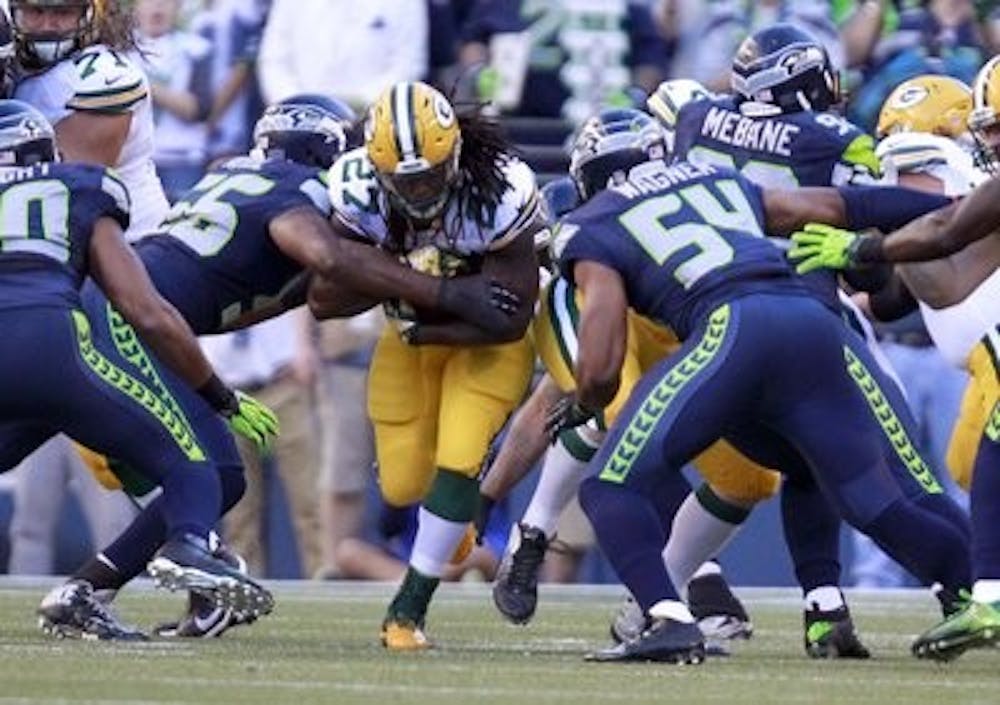The Green Bay Packers have never hurt me quite like they did in blowing a potential Super Bowl berth in Seattle Sunday, Jan. 18.
But after the 12th Man's dreams were resurrected and Russell Wilson so ruthlessly finished off one of the most thrilling comebacks in NFL history, one question lingered: Could Aaron Rodgers have done the same if the Packers won the coin toss?
It's a fair question, considering he'd led his team 48 yards in 1:11 just five minutes before, picking apart the best defense in the NFL on one leg, and eventually setting up Mason Crosby's game-tying field goal.
We all know what happened in overtime. Seattle won the coin toss, and three minutes later Wilson hit Jermaine Kearse to seal a Super Bowl berth.
The NFL has slowly been changing the rules of its sudden-death overtime.
Until 2010, a simple field goal would seal a win in overtime.
Now a first-possession touchdown is required to achieve sudden-death victory.
It's an arbitrary line to draw, and it's one that places too much emphasis on the outcome of a coin toss.
If the goal is to create a completely fair overtime competition, then why not require the team that scored first to play defense also?
Imagine if extra inning games in the MLB were decided in this way. A coin flip could play a big role as to whether or not your offense ever comes to the plate.
College football has always had it right on this one.
Their rules allow both teams equal opportunity to score and test a team's offense and defense.
From conservative play calls to Brandon Bostick attempting to catch a football with his helmet, the Packers earned every bit of their sudden death.
But it's now time for the NFL to provide a sudden death to its own arbitrary rules.
Eric Wallace is the sports editor at The Plainsman. He can be reached at sports@theplainsman.com
Do you like this story? The Plainsman doesn't accept money from tuition or student fees, and we don't charge a subscription fee. But you can donate to support The Plainsman.





